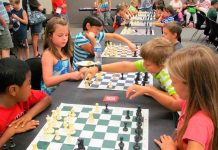Административная контрольная работа
по английскому языку
для 9 класса
по теме: School
I. Reading
Read the text and decide, what is true, false or not stated according to the text:
Valuable Lessons
When adults praise a child for trying, despite poor work, they teach that attempt is more important than results. I once took over a class in a middle of a term from a teacher who was a generous marker. After I had returned marked papers, one boy complained about receiving a “C”. “I’m used to getting A’s” he said. When I explained that his essay was badly written, he asked: “What about the pictures? Our other teacher gave extra scores for effort.”
Real life seldom praises those who try but don’t get results. And it’s a rare boss who tolerates an employee who insists that he’s doing his best. Unmerited praise may keep children from realizing their own true abilities.
Years ago, my best friend was a naturally gifted musician. Her family saw every effort as “brilliant” but she hated practicing and often did badly at lessons. After one particularly unsuccessful performance, her mother said, “You were wonderful, but that piano needs tuning and the audience was so noisy, it’s no wonder you forgot the second movement”. Had this girl received criticism, she might have realized her dreams of becoming a concert pianist. As it was, her playing got worse, she lost interest and one day dropped out of music school.
1. The author is a teacher.
2. The boy’s mark for the essay wasn’t fair.
3. The boy did well at school.
4. If a child gets unmerited high marks, (s)he won’t discover his/her real abilities.
5. The girl received much support from her family.
6. The pianist failed to perform well because the piano was badly tuned.
7. In the end the girl managed to make a successful musical career.
II. Vocabulary
a) Underline the correct word:
1. Tom went to grammar / boarding school, so he only came home during the holidays.
2. I want my children to go to a comprehensive / single sex school because I think it’s better for boys and girls to learn separately.
3. Most children go to state / public school where education is free.
4. My parents couldn’t afford to send me to a grammar / private school when I was young.
5. Eton and Harrow are famous state / public schools.
b) Match the place and its purpose:
a) computer lab 1. spend breaks
b) gymnasium 2. carry out experiments
c) corridor 3. borrow school materials
d) canteen 4. spend free periods, attend meetings
e) science lab 5. play indoor sports
f) library 6. have lunch
g) staff room 7. make research on the Net
III. Writing. You received a letter from your foreign friend Andy who writes:
Answer the letter in 100-120 words; don’t forget the rules of letter writing.
Административная контрольная работа
по английскому языку
для 9 класса
по теме: School
Аспекты для повторения: Времена глагола. Косвенная речь. Пассивный залог. Словообразование.
I. Reading and Grammar
1. A Choose the appropriate option for each gap:
From the History of Cambridge University
Cambridge is famous _1_ the world as one of the oldest university cities in Britain – Oxford, of course, is the other. Its streets are packed with students going about their business on bicycles.
a) through b) on c) throughout d) out of
The story of the university began in 1209 when students and scholars _2_ the little town of Cambridge after they had walked 60 miles from Oxford where was constant trouble between the people living in the town and the students. One day a student accidently killed a man of the town.
a) arrived in b) reached in c) arrived to d) was arrived at
The Mayor arrested three _3_ students who were innocent and they _4_ death.
3. a) another b) the other c) others d) other
4. a) put it b) were put to c) put to d) were put at
In protest all the students moved _5_, some coming to Cambridge, and so the new University began.
a) anywhere b) to somewhere c) in nowhere d) elsewhere
B Questions 1 – 5 are based on the text you’ve read in Part A of this Section. Choose the best option to each question on the basis of what is stated in the text.
Which of the following is not true?
1. Cambridge and Oxford are the oldest universities in Britain.
2. You can see a few students going about their business on bicycles in Cambridge.
3. The first students and scholars came to Cambridge 791 years ago.
4. The first students of Cambridge were the former students of Oxford.
5. Students of Oxford and its citizens got on pretty well.
2. Choose the best option:
1.She said that she … keen on drawing.
-
was
-
is
-
has been
-
were
2. I … her that I … time to play the piano.
-
tells, didn’t have
-
told, didn’t have
-
told, have no
-
told to, hadn’t have
3. Jane answered that she … very early, so she … the news.
-
went to bed, hadn’t seen
-
had gone to bed, hadn’t seen
-
has gone to bed, hasn’t seen
-
had gone to bed, didn’t see
4. Mary told me that she … to leave for London the next week.
-
is going
-
has gone
-
were going
-
was going
II. Use of English
Use the word given in capitals to form a word that fits in the space on that line:
The Work of a Librarian
As Head Librarian I have a lot of RESPONSIBLE 0) responsibility. As well as managing a staff of eight 1) PERSON, I also control all the 2) OPERATE of the library.
This year we have a lot of 3) MEDICINE students. Because of the extra demand for library time, our working hours have become 4) LONG.
I find my job very 5) INTEREST and enjoy 6) DIFFERENCE opportunities it provides. Though, 7) FORTUNATE, the salary is not very high.
III. Vocabulary
Fill in the gaps 1 – 7 with appropriate words given below:
fee, percent, boarding, assistance, scholarships, attended, highly.
The most famous schools in Britain are private _1_ schools, such as Eton College, Harrow School, Rugby School, and Winchester School. These famous private schools, founded during the Middle Ages, are theoretically open to the public, but in reality are _2_ by those who can afford the _3_. Many of Britain’s leaders have attended these private schools, which cater to those wealthy and influential but also offer some _4_ to gifted poorer children. Local authorities and the central authority also provide _5_ to some families who are unable to pay the fees. Just a small percentage of the population can attend these ancient and _6_ prestigious schools. Only seven _7_ of British students attend private schools.





